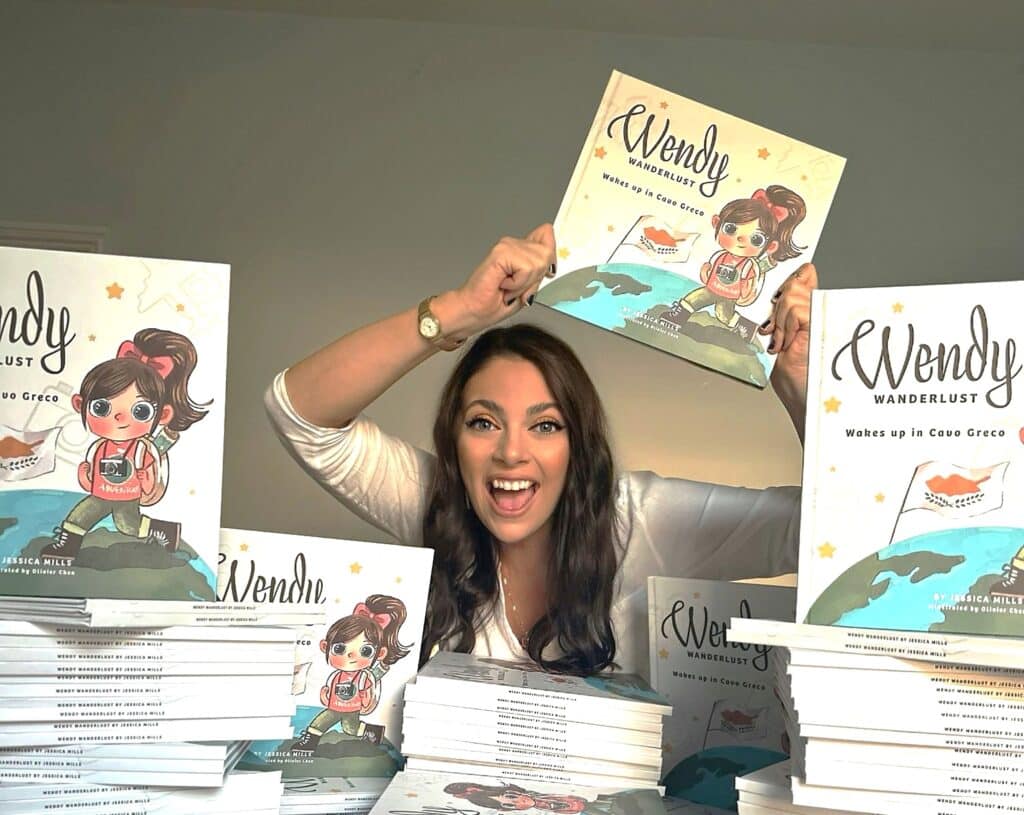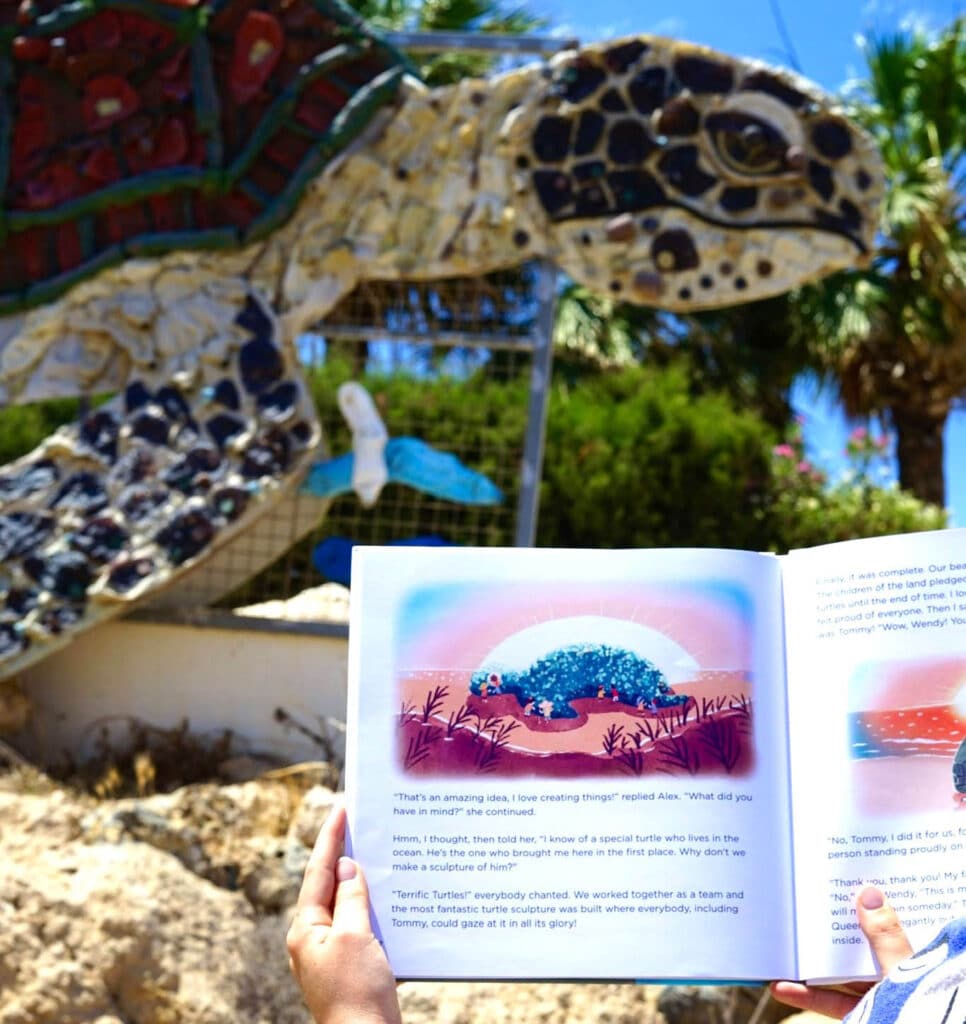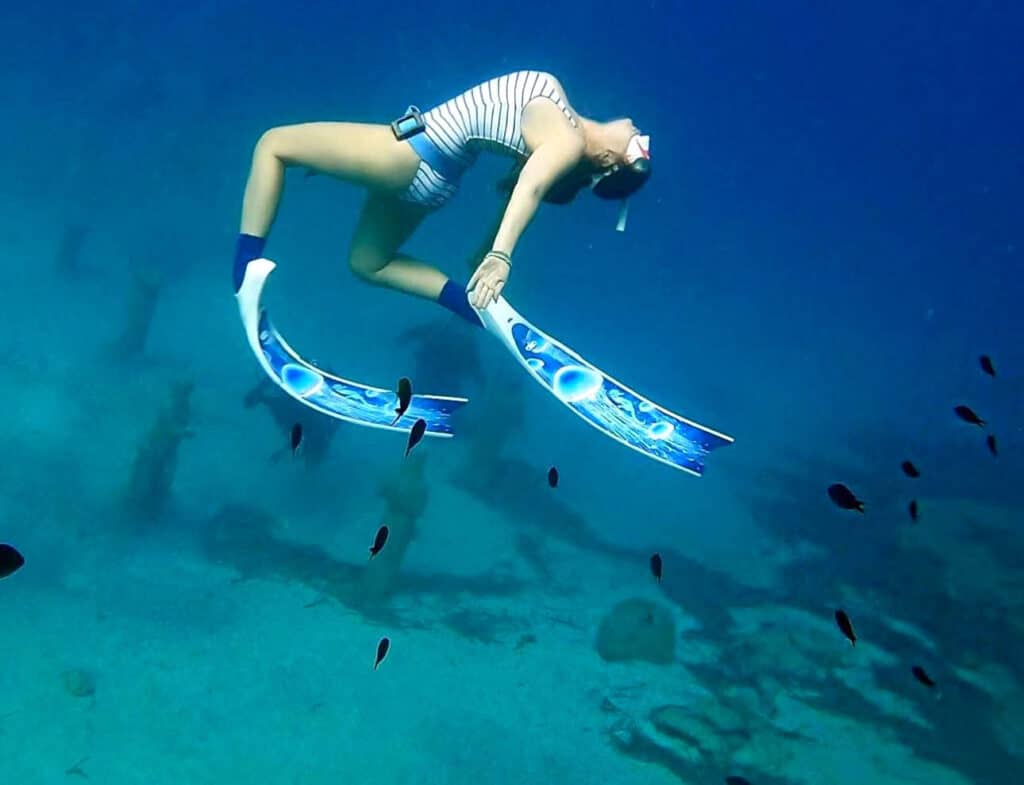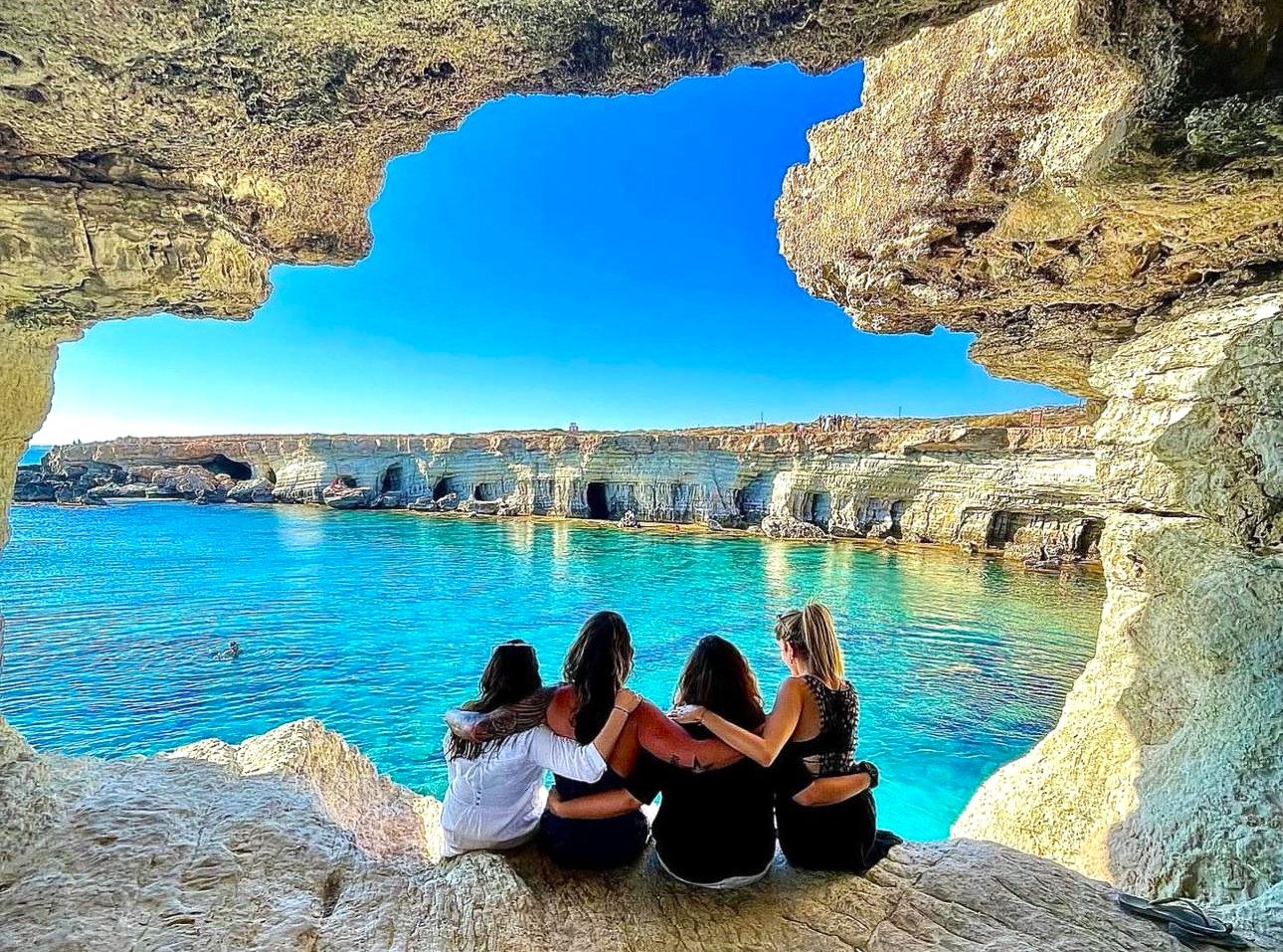While the beaches of north Cyprus have the second worst microplastic pollution in the world, Alix Norman meets a marine mentor who’s penning tales to save our seas
Worryingly, the majority of turtles born in Cyprus are female.
Why? Well, the sex of a turtle is determined not by genetics, but by the warmth of its nest. The hotter the beach, the fewer males are hatched.
But over the past decade, climate change has added almost half a degree to the temperature of the sea – and to the watery coastline where turtles hatch. And here in the Eastern Mediterranean, the seas are actually warming far faster. Twenty per cent more quickly than the global average, in fact.
Consequently, it’s believed the gender of our Loggerheads and Greens is skewing disastrously female.
Conservation efforts have included shading or relocating nests, or incubating eggs in controlled conditions to ensure a more balanced sex ratio. It’s hard work, and not fun in the heat of summer when turtles nest on our shores. But this is an issue that pales in comparison to the big problem for our island’s most vulnerable sea creatures: pollution.
“The beaches of north Cyprus have the second worst microplastic pollution of anywhere in the world!” acknowledges Jessica Mills. “And, despite our best efforts, the rest of the coastline is not far behind…”
“These beaches are crucial nesting sites for Loggerhead and Green turtles. Yet microplastics raise the temperature of the sand, which has a hugely detrimental effect on the hatchlings. And larger plastics are easily swallowed, or caught up around sea creatures.

Jess and her new book
“Research suggests that roughly one in 10,000 of our turtles survive to maturity. So the few that remain must be protected at all costs. Especially from pollution.”
Jess is not an environmentalist. In fact, she’s an executive at Intrepid Travel, a company that connects people and communities around the world. And she doesn’t live in Cyprus – for the last two years, she’s been based in Britain.
But she knows the island extremely well; works closely with environmental NGO Let’s Make Cyprus Green; and is the author behind a wonderful new children’s book that’s helping to save Cyprus’ turtles…
“I was based in Cyprus from 2020 until 2022,” says the 30-year-old. “Over the years, I’d lived in Spain, America, Switzerland, Mexico – I thought the island would be just another stop in my journey!
“But it’s absolutely unique,” she exclaims. “In some ways, this is the place with everything: mountains, sunshine, incredible food. Yet in others, Cyprus is way behind the times: bottled water everywhere, recycling nowhere. High levels of air pollution in the cities. And rubbish wherever you go – especially on the beaches.
“I love diving,” she continues. “And as soon as I arrived on the island, I headed off to Cape Greco. There, for the first time in my life, I was able to swim alongside a turtle – a fantastic experience! But the more I dived the island’s beaches, the more I realised just how unusual my first excursion was: as the weeks went by, I never saw another…”

The Ayia Triada turtle made from recycled rubbish appears in the book
At first, Jessica thought this was down to luck.
“I’d read a lot about turtles; I knew their habits, their migratory paths, the times of year they were most likely to appear around Cyprus. But then I started talking to others, locals who knew about the sea and the seasons. And I began to realise it was no wonder the turtle population was declining: not only were our rising sea temperatures affecting the gender balance, but the sheer scale of Cyprus’ problem with microplastics and marine pollution was astronomical!
“And so,” she adds, “I invented Wendy…”
A literary creation, Wendy Wanderlust is a character designed to alert the younger generation to environmental issues. “She’s a little girl with a big heart, and a magic backpack that lets her travel the world,” explains Jessica. “And her very first stop is Cyprus…”
As Wendy swims off Cape Greco, she meets mermaids and sea queens, friendly fish and Tommy Turtle. All are sad – pollution is destroying their beautiful underwater habitat and they don’t know how to fix the problem. But Wendy does!
Our problem-solving protagonist alerts the community, organises beach clean-ups, and helps people recycle rubbish into a big statue of a turtle (which actually exists on Ayia Triada beach). She raises awareness, and ensures younger generations know how to care for their precious marine environment. And she even guides young readers through a wealth of activities designed to get them thinking about eco-activities of their own.
“It’s a story that I know will resonate with children, both in Cyprus and abroad,” says Jessica. “If you talk to kids about marine pollution, they switch off. But present the issue as a story, and you’re transforming an abstract issue into an understandable, engaging narrative!”

Jess freediving at Cape Greco
Since publishing, Wendy Wanderlust Wakes Up in Cape Greco has sold around the world, bringing the plight of Cyprus’ sea turtles to children in Australia, America, Switzerland, Sweden, Italy and the UK.
Meanwhile, the author has also organised clean-ups and bake sales in aid of Let’s Make Cyprus Green, and even partnered with the organisation to ensure that 25 per cent of proceeds from book sales from their eco shop go straight to helping save our island’s turtles.
But mostly, she’s just hoping that the book will effect positive environmental change for an island she loves.
“I’ve travelled the world,” she acknowledges. “I’ve worked my way across America, hiked through Europe, taught in Africa. I’ve skied the Alps and sailed the Atlantic; explored the ancient temples of Asia, and marvelled at the wildlife in the Amazon.
“But nothing,” she concludes, “compares to Cyprus. It’s a little Mediterranean paradise that will be forever in my heart. This is the island that’s blessed with everything, including turtles. For now, anyway…”
Wendy Wanderlust Wakes up in Cape Greco is available from the Let’s Make Cyprus Green Ecoshop, as well as from www.wendy-wanderlust.com The next book in the series will be released later this year







Click here to change your cookie preferences